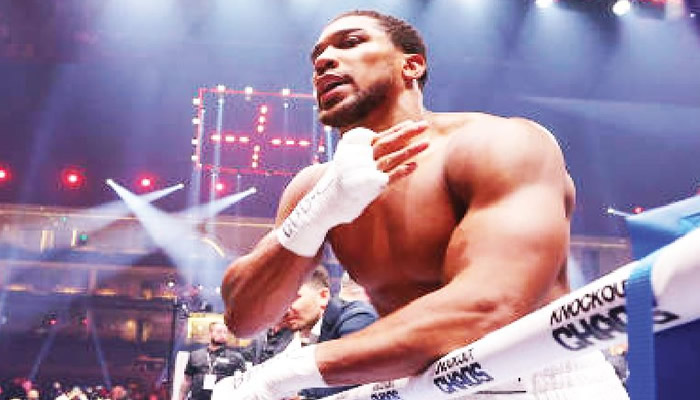Dillian Whyte, a seasoned contender in the heavyweight boxing division, has publicly criticized Anthony Joshua’s strategic decision to forgo an immediate rematch with Daniel Dubois following his knockout defeat last September at Wembley Stadium. Whyte argues that Joshua missed a golden opportunity to avenge the loss, secure a significant payday, and mitigate the lasting impact of the visually jarring knockout, which has become fodder for internet memes. Whyte draws a comparison to his own experience after losing to Alexander Povetkin, emphasizing the importance of a “rematch mindset” and the drive to avenge defeats. He highlights his own desire for rematches against both Joshua and Tyson Fury, driven by the need to rectify past losses and prove his mettle.
Joshua’s career currently stands at a crossroads, with multiple potential paths unfolding before him. Promoter Eddie Hearn has confirmed seven different options for Joshua’s next fight, including a possible rematch with Whyte, a bout that was previously scheduled but canceled due to Whyte’s failed drug test. Simultaneously, the newly crowned IBF champion, Daniel Dubois, is slated to defend his title against Joseph Parker, with the victor potentially lining up a future showdown with Joshua. This creates a complex scenario where Joshua’s next opponent could emerge from either a direct call-out or the outcome of the Dubois-Parker fight, adding layers of intrigue to his immediate future.
The landscape of the heavyweight division has been further complicated by Tyson Fury’s unexpected retirement announcement, which has effectively dashed hopes of a highly anticipated all-British showdown with Joshua. This fight, long awaited by fans and pundits alike, represented a potential pinnacle for both fighters’ careers and a defining moment for British boxing. Fury’s decision has left a void at the top of the division and thrown Joshua’s trajectory into further uncertainty. While Fury’s retirement has been met with skepticism, it nevertheless presents a significant obstacle to the potential mega-fight.
Hearn, however, remains hopeful that Fury’s retirement might be a temporary strategic maneuver, speculating that the announcement could be a negotiating tactic aimed at maximizing future earnings. He suggests that a return to the ring, particularly for a fight of the magnitude of a Joshua clash, would command a higher price tag following a period of “retirement.” This introduces an element of gamesmanship into the situation, with Fury potentially leveraging his absence to increase his bargaining power. The ambiguity surrounding Fury’s true intentions adds another layer of complexity to the heavyweight division’s dynamics.
Joshua, meanwhile, has maintained a public silence regarding Fury’s retirement announcement, a response that Hearn characterizes as typical of the fighter’s reserved demeanor. This silence allows for various interpretations, ranging from genuine indifference to strategic calculation. Joshua might be focusing on his immediate options, awaiting the outcome of Fury’s decision, or simply choosing to refrain from engaging in public speculation. Regardless of the reasoning, his silence adds to the air of anticipation surrounding his next move.
The convergence of these factors – Whyte’s critique, the Dubois-Parker fight, the potential Joshua-Whyte rematch, and the uncertainty surrounding Fury’s retirement – creates a dynamic and unpredictable landscape in the heavyweight division. Joshua’s next move will be crucial in shaping his legacy and navigating the complexities of the current boxing scene. Whether he chooses to pursue a rematch with Dubois, re-engage with Whyte, or patiently await the unfolding of events surrounding Fury, his decision will have significant ramifications for his future and the trajectory of the heavyweight division.














